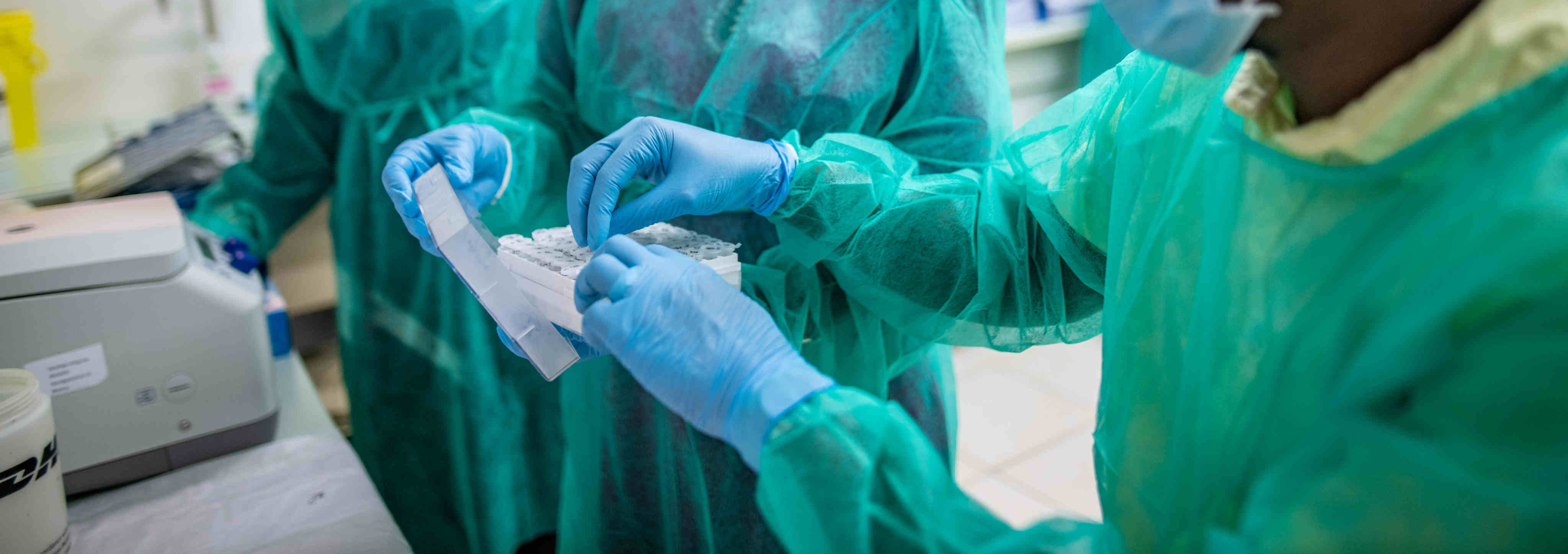
The Science Behind COVID-19: Interpreting Epidemiological Trends and Models
What is mathematical epidemiology and how has it traditionally been used? What can epidemiological trends tell us and what is the importance of genomic surveillance? How can mathematical modelling support planning of COVID-19 interventions? Join us to review the history of mathematical epidemiology and modelling, its world-wide prominence over the last 12 months, and why we are discussing the science behind COVID-19 modelling and epidemiology data today. We will look at monitoring of genetic variants, communication beyond the science to decision makers, COVID-19 vaccine and intervention modelling, and how to interpret scenarios (not forecasts) for decision making.
Preliminary Programme
12:00 Setting the Scene and Interpreting Epidemiologicial Trends, Melissa Penny and Nakul Chitnis, Swiss TPH
12:25 Genomic Surveillance and Epidemiological Trends, Sarah Nadeau, Swiss Federal Institute of Technology (ETH Zürich)
12:50 Understanding Intervention Scenarios, Andrew Shattock, Swiss TPH
13:15 Q&A
13:30 End of Session
For more information and to register visit - https://www.swisstph.ch/en/about/events/ves/
Articles
Virtual Workshop: Recognition And Control Of Mtb Infected Cells: From Basics To The Clinic | 13 – 14June 2023
The Stop
TB Partnership Working Group on New TB Vaccines (WGNV) and the National
Institute for Allergy and Infectious Diseases (NIAID)are
co-hosting a workshop on the topic of Recognition and Control of Mtb
Infected Cells: From Basics to the Clinic. This workshop is intended to address
the need for correlates and to identify platforms that measure recognition or
control of the infected cell - especially in humans - as identified in the EDCTP/AIGHD Global Roadmap for
Research and Development of New TB Vaccines and the Strategic Framework for
New TB Vaccines in the Stop TB Partnership Global Plan to End TB 2023 - 2030.
The overall goals of this workshop
are to:
- elucidate the mechanisms by
which the immune system recognizes the Mtb-infected cell
- explore the degree to which
such recognition can lead to control of the intracellular microbe, and
- discuss the translational
implications of these observations
The workshop format will be largely
discussion-based. Each session will have three short presentations that will
provide a high-level overview of key topics within the session theme, followed
by a discussion between the session chairs, speakers, and participants.
Click here
to view the programme and
speakers.
This workshop is free of charge and
open to any participants interested in this topic.
Ssi/Isid Infectious Diseases Research Fellowships | Deadline For Applications: 16 June 2023
The International Society for Infectious Diseases (ISID) and the Swiss
Society for Infectious Diseases (SSI) are inviting applications for their joint
Infectious Diseases Research Fellowship Program. The purpose of this programme
is to support infectious disease physicians and scientists from under-resourced
countries through multidisciplinary clinical and laboratory training at a
select biomedical institution in Zurich, Switzerland. The one-year SSI/ISID
Fellowship programme is open to applicants who are 40 years or younger,
citizens and permanent residents of under-resourced countries or Eastern
Europe. The deadline for applications is 16 June 2023.
More information: https://na.eventscloud.com/eSites/748378/Homepage
Ethical Review Of Decentralized Clinical Trials (Dcts): Tools, Resources & Best Practices.
The MRCT Center and Medable convened a multi-stakeholder task force to address ethical and regulatory opportunities and challenges related to Decentralized Clinical Trials (DCTs). Join them on June 20, from 10 - 11 AM ET, for a joint webinar entitled, "Ethical Review of Decentralized Clinical Trials (DCTs): Tools, Resources & Best Practices."
During the webinar, Barbara Bierer (MRCT Center), Pam Tenaerts
(Medable) and Leanne Madre (Medable) will present a framework, recommendations,
and tools organized around 3 DCT domains: People, Remote Data Collection, and
Data Oversight. Best practices for the ethical review, approval, and conduct of
DCTs will be provided.
Clinical trial stakeholders (IRB/ECs,
HRPP, sites, sponsors, investigators, and others) to register for the webinar here